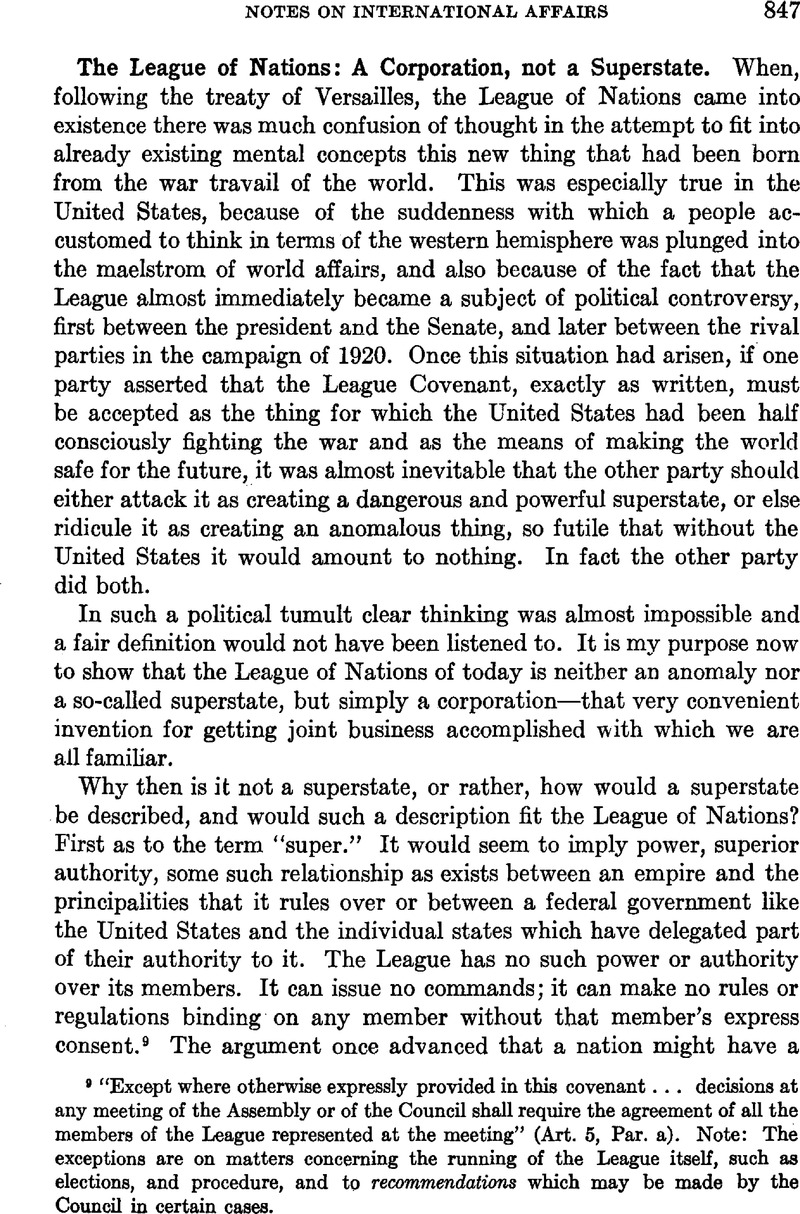No CrossRef data available.
Article contents
The League of Nations: A Corporation, not a Superstate
Published online by Cambridge University Press: 01 August 2014
Abstract

- Type
- Notes on International Affairs
- Information
- Copyright
- Copyright © American Political Science Association 1926
References
9 “Except where otherwise expressly provided in this covenant … decisions at any meeting of the Assembly or of the Council shall require the agreement of all the members of the League represented at the meeting” (Art. 5, Par. a). Note: The exceptions are on matters concerning the running of the League itself, such as elections, and procedure, and to recommendations which may be made by the Council in certain cases.
10 The procedure is slightly more complicated, but the description given is substantially correct. See Art. 26 of the covenant as amended.
11 International Law, 19.
12 Jurisprudence.
13 International Law (3rd ed.).
14 China, Liberia, etc. Argentina has paid nothing since 1920, but its present government is reported to be strongly “pro-League.”
15 State Freight Tax Case, 15 Wall (U. S.) 232.
16 For a legal definition of a corporation consult Fietsam v. Hay, 122 Ill. 293; Dartmouth College Case, 4 Wheat 666; or any good legal text-book or dictionary.
17 By both the civil and the common law the sovereign authority only can create a corporation.
18 Art. 1, Par. b.
19 Art. 1, Par. c.
20 Statement of the Financial Director of the League.
21 Five powers, i.e., France, Italy, Germany, Japan, and the British Empire, have permanent seats in the Council. This is analogous to the condition in some private corporations where certain stockholders have rights not enjoyed by the others, i.e., holders of preferred stock.
22 The religious foundations and the chartered municipal corporations of the Middle Ages.
23 Holland, , Jurisprudence (12th ed.), 340 Google Scholar.





Comments
No Comments have been published for this article.